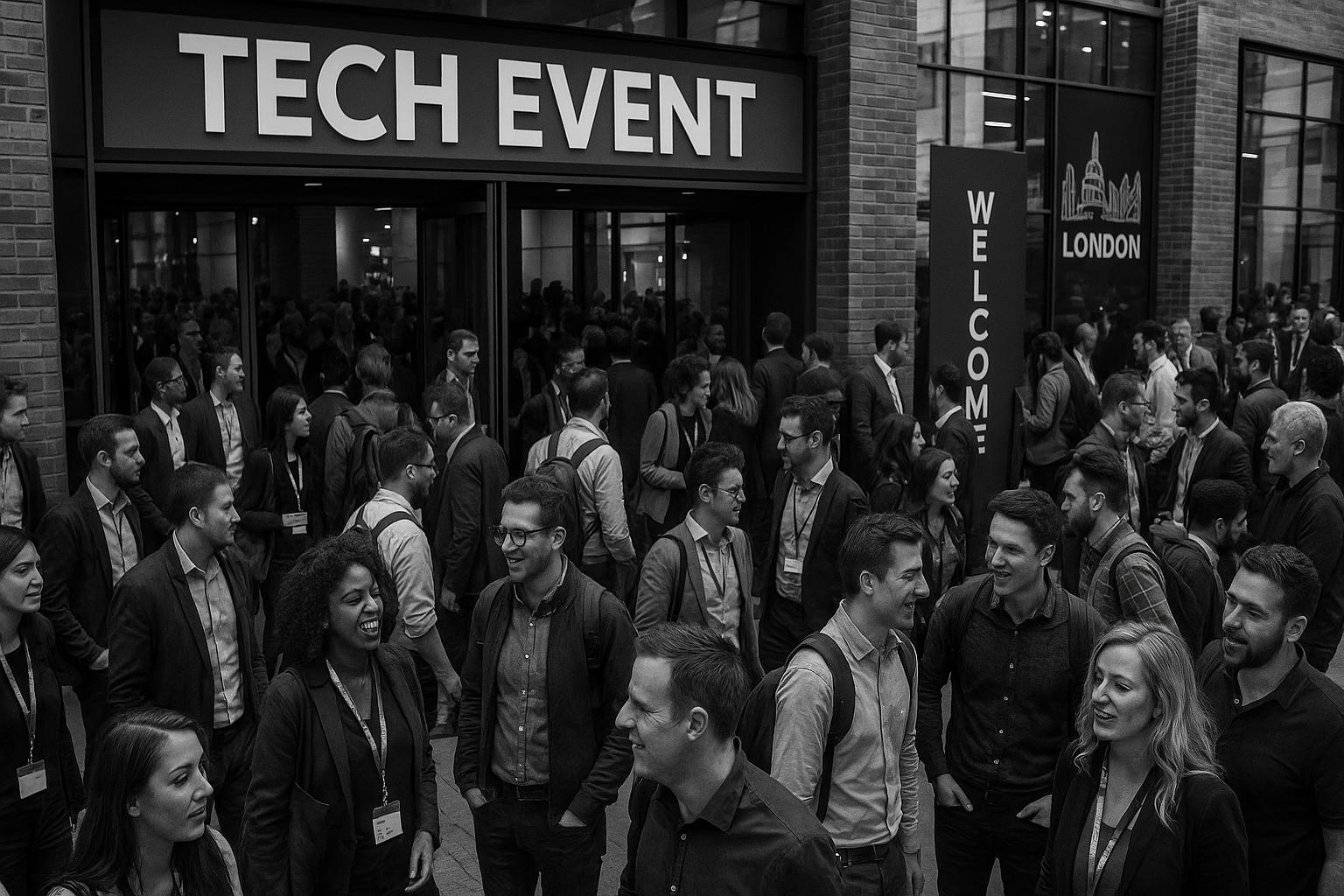Having attended London Tech Week for five years—three as a journalist and the last two as the founder and editor of TFN—I have witnessed a remarkable transformation. What began as a relatively formal event rooted in British tradition has evolved into a vibrant gathering that celebrates global talent, innovation, and ambition.
This year, held at Olympia London, the atmosphere felt distinctly more energetic and dynamic. From the quick-moving queues to the bold branding, with striking blues and pinks punctuated by the “Green Innovation Stage,” the event bore more resemblance to a European festival of innovation than a conventional industry conference. Yet, with such growth come challenges, as highlighted by the incident on opening day. Entrepreneur Davina Schonle faced humiliation when she was refused entry for attempting to bring her eight-month-old child. This discordant moment underscored the need for the event’s policies to align better with its stated values of inclusivity and progressivism.
Despite this setback, the event showcased substantial momentum. Prime Minister Keir Starmer's unexpected presence alongside Jensen Huang, CEO of Nvidia, sent a clear message: the UK is prepared to take the lead in the tech sphere. Starmer articulated a vision for the UK's ambitions in artificial intelligence, announcing a significant £1 billion investment to enhance the nation's computing capacity by twentyfold. This funding aims to bolster initiatives such as the UK AI Research Resource launched earlier in 2023, emphasising a collaborative approach to AI advancement across sectors.
With approximately 30,000 attendees hailing from 125 countries, London Tech Week felt like the nucleus of European technology. High-profile figures from industry giants, including Darren Hardman, CEO of Microsoft UK, and Niklas Zennström from Atomico, reinforced the notion that London aspires to be a leader, not just a participant, in the ongoing AI revolution. However, Huang noted that despite the UK's strong AI research capabilities, significant improvements in digital infrastructure are necessary if it aims to catch up with the likes of the US and China.
The event featured remarkable initiatives, such as the UK–Ukraine TechBridge Investment Accelerator Demo Day, where ten promising Ukrainian startups showcased their innovations after undergoing an intensive programme aimed at global expansion. This initiative, backed by 1991 Ventures, the UK government, and Ukraine’s Ministry of Digital Transformation, served as a poignant reminder that innovation persists even amid conflict.
The diversity of startups at the event was also noteworthy. Founders and teams from Singapore, Turkey, Pakistan, India, and Malta contributed to a robust exchange of ideas that characterised London Tech Week's international scope. Homegrown talents, like Strolll, an AR-powered neurorehabilitation platform, and CipherX Tech, which offers AI-driven painless tattoo technology, highlighted the UK's innovative potential. Another crowd favourite was Ameca, a humanoid robot that captured the attention of attendees and showcased the whimsical side of technological advancement.
Additionally, the event focused on innovative solutions aimed at empowering SMEs, predominantly within sectors like AI, cybersecurity, fintech, and HRtech. Matthew de la Hey, co-founder and CEO of Inploi, explained how their platform seeks to revolutionise the hiring process with features like AI CV scoring and natural language search, making recruitment faster and more efficient—a stark contrast to traditional, time-consuming Applicant Tracking Systems. “We’re bringing Netflix to the game,” he remarked, touching on the obsolete nature of many hiring tools today.
The Founders Stage Panel I participated in tackled critical topics, including the UK’s challenges in producing more global tech brands and the structural changes necessary for supporting startups on an international scale. While the UK’s startup ecosystem appears to be improving, gaps remain—particularly concerning growth-stage support and scaling talent.
No discussion of London Tech Week would be complete without acknowledging the influential side events. Among these, VC Padel proved a popular forum for fostering connections between investors and founders, reflecting on the sentiments that side events often facilitate deeper conversations. Adrian Love, General Partner at Love Ventures, remarked on the relaxed atmosphere necessary for meaningful networking.
Another noteworthy gathering was the Mountside Ventures Unofficial After Party, offering a glimpse of Europe’s vibrant venture ecosystem. There, conversations ranged from the UK’s AI talent gap to the pressing need for enhanced digital infrastructure. Jon Steinberg, Founding Partner of Mountside Ventures, pointedly observed that while the UK is making strides, it must also overcome significant hurdles to implement AI initiatives successfully.
Amid these discussions, innovations came to the fore. For instance, Applied Computing, a British AI firm, recently secured a £9 million seed round to develop foundation models aimed at enhancing energy efficiency in heavy industries. CEO Callum Adamson shared insights into their mission, stating that the transition to sustainable practices must also consider hydrocarbon industries.
As the event concluded, it was evident that London Tech Week is no longer merely a platform for tech engagement—it's a catalyst for shaping the future of technology. While the atmosphere was both bold and determined, reflecting an unyielding commitment to progress, challenges remain. The hope is that as the event continues to evolve, it will also become more inclusive and accessible. The future of UK tech appears bright, marked by resilience and a clear ambition to lead on the global stage.
📌 Reference Map:
- Paragraph 1 – [1], [4]
- Paragraph 2 – [1], [2], [5]
- Paragraph 3 – [3], [2]
- Paragraph 4 – [1]
- Paragraph 5 – [4], [5], [6]
- Paragraph 6 – [1], [3], [2]
- Paragraph 7 – [1], [6]
- Paragraph 8 – [5], [4]
- Paragraph 9 – [1], [2]
- Paragraph 10 – [3], [1]
- Paragraph 11 – [6], [4]
- Paragraph 12 – [1], [3]
Source: Noah Wire Services
